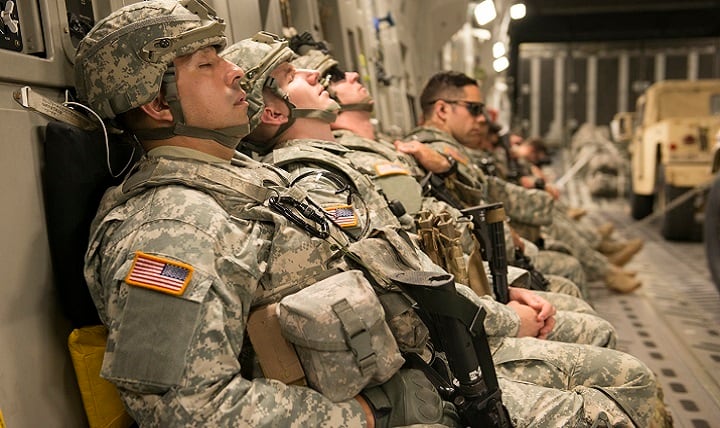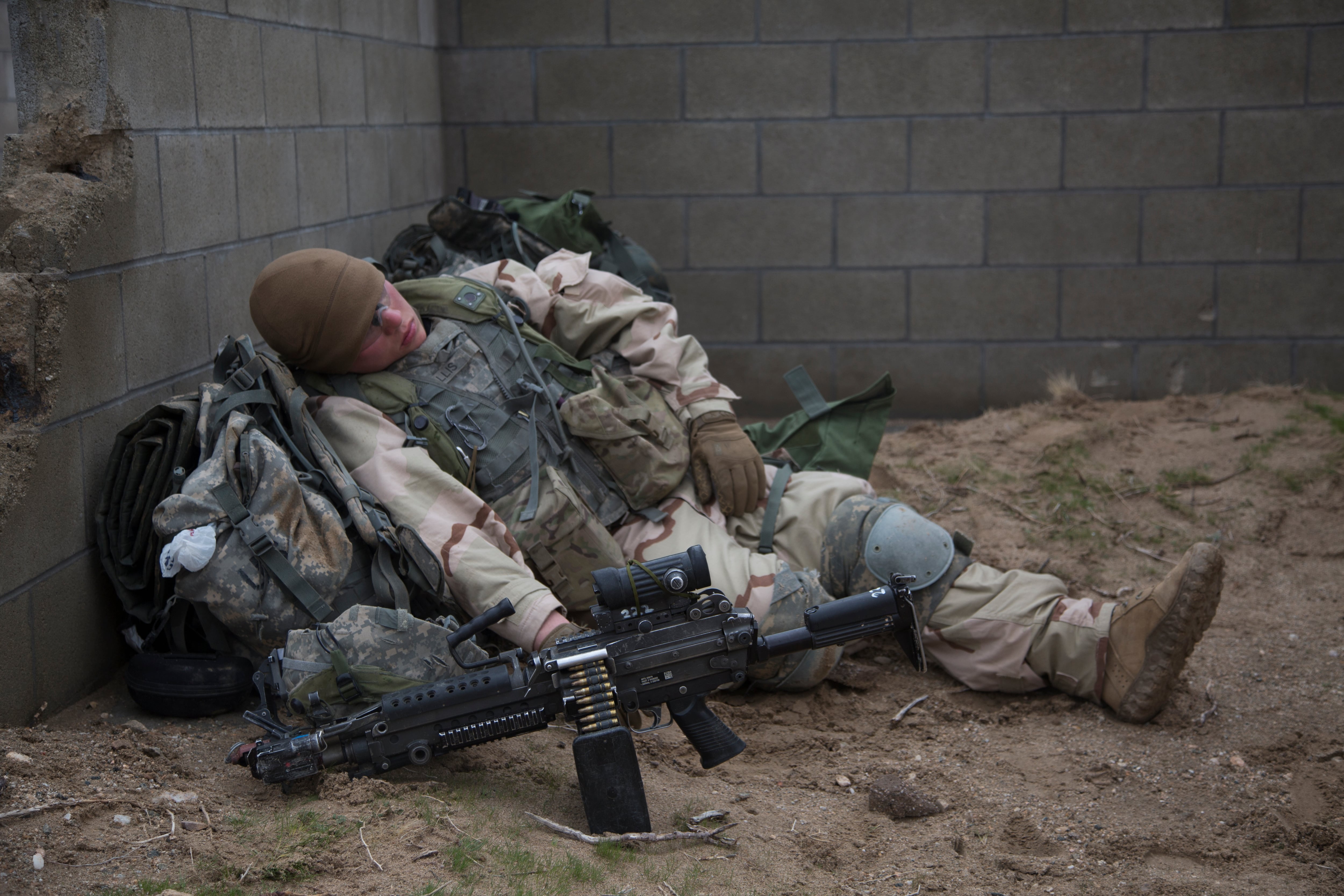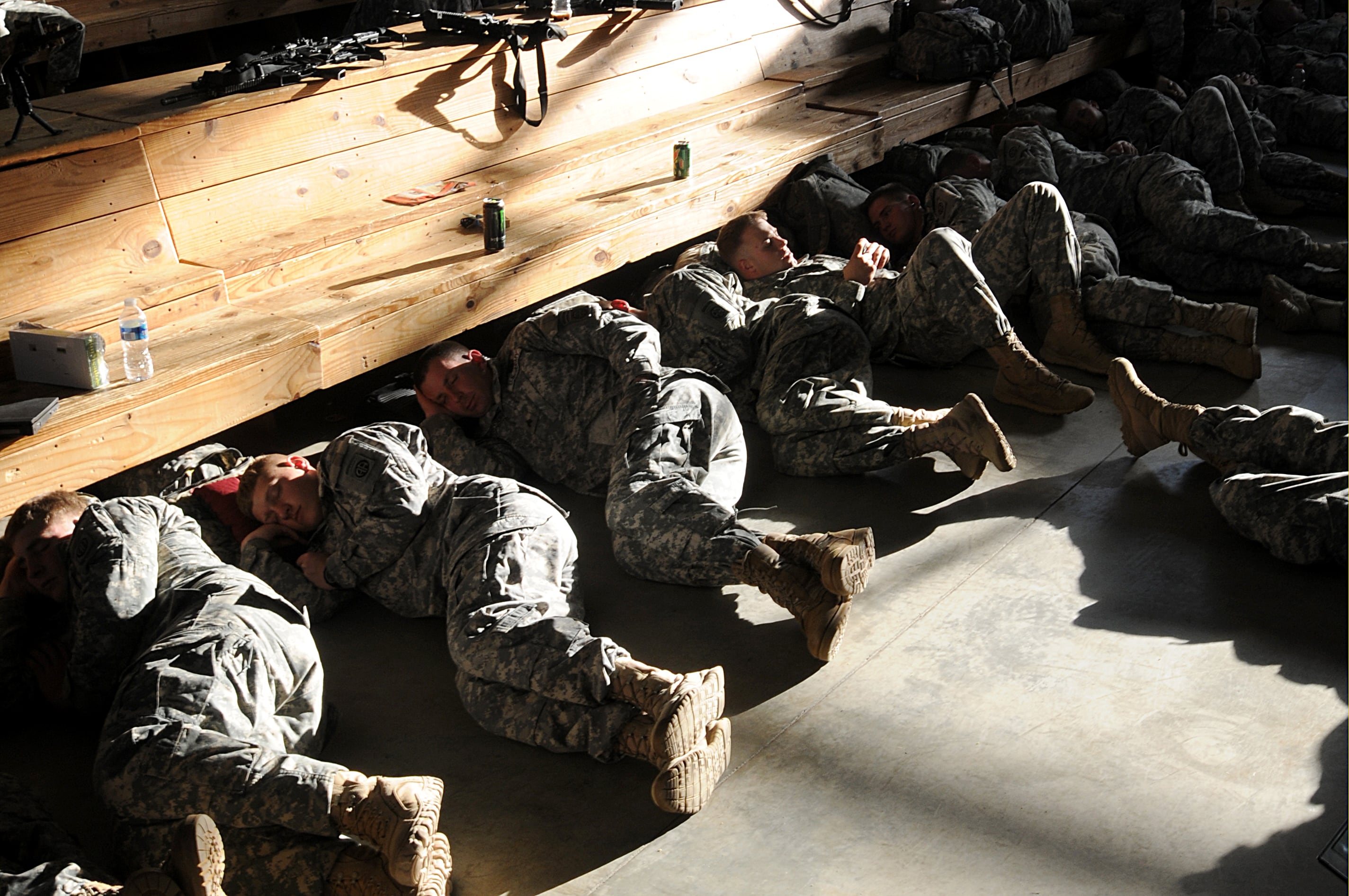FORT EUSTIS, Virginia — As soldiers learn how to do leg tucks, better planks, deadlifts and carry heavy objects, they’ll also need to learn the discipline of “tactical naps.”
That’s the message that at least one Army sleep expert with the Sleep Research Center at the Walter Reed Army Institute of Research shard with an audience of service leaders tasked with implementing and improving their newest challenge — total soldier fitness.
Maj. Allison Brager discussed the need for sleep with an audience at the Army’s second annual Holistic Health and Fitness, or H2F, conference here at the home of Army Training and Doctrine Command.
RELATED

The H2F program was officially adopted by the Army in 2020. It includes an approach using professional civilian and military trainers and experts to assess and assist soldiers in health areas that range from nutritional advice to spiritual fulfilment.
Brager, who is a neurobiologist, also works with the John F. Kennedy Special Warfare Center and School where she tracks Special Forces selection and retention.
Data gathered from Army studies and the service’s sleep research center are showing similar results — soldiers need sleep.
But as anyone who’s served in any military unit can attest, sometimes, even most of the time, an eight-hour sleep block may not be possible.
That’s where the “tactical nap” and other sleep aids and practices can help.
A tactical nap is about a 20-minute power nap that soldiers should be encouraged to implement when needed. And commanders should recognize that it will enhance not only performance but also safety.
Brager cited work done by military researchers during the Persian Gulf War in the early 1990s that showed dramatically reduced marksmanship performance and combat effectiveness with even a small reduction in sleep.

Only a few years ago, Brager and the sleep research center team conducted a similar study with soldiers from 1st Armored Division while they were stationed at Camp Buehring, Kuwait, and found almost identical results.
At seven or more hours of sleep, a soldier is 98% combat effective.
At six hours, that drops to 50%.
At 5 hours, the soldier’s down to 28% combat effectiveness.
Four hours or less, and the soldier is practically a liability at only 15% combat effectiveness.
The kicker? Before that second study, the Army’s official guidance for adequate soldier sleep time was four hours.
Brager said it was “nearly impossible” for a soldier to be combat effective at that level of sleep.
Studies from the research center that Brager also cited showed a significant, as much as 50%, drop in testosterone among Army Rangers who had major sleep loss and who switched to night operations during a two-day study.
The testosterone levels remained low until soldiers took time to sleep.
Studies have also found that switching from daytime to night operations also affected the test subject’s stationary balance and coordination, both of which are factors for potential injury.
During the discussion, an audience member asked Brager how the Army was working within certain communities, such as Rangers and Special Forces. Both of those organizations internationally inject sleep deprivation into training.
“You are, in a sense, pre-selecting for people who are resilient to sleep deprivation,” Brager said.
But, she added, there are ways to determine more quickly who has an innate ability to fight off the effects of sleep deprivation. Unfortunately, current research shows this is mostly a genetic factor and not something that can be trained, she said.

Though there is good news. Research with the Argentine Navy, where researchers and sailors lived isolated in Antarctica for a year with varying schedules of daylight and nighttime, found that if the subjects got sufficient sleep in the 24-hour cycle they could remain well rested.
That didn’t always mean sleeping eight hours straight. Often, that meant breaking up sleep depending on their schedules.
Where you’re stationed might also affect your sleep. Scientists gathered reported sleep disorder information across major Army installations. The average numbers showed about 15% of soldiers at any given Army unit were suffering from a sleep disorder or deprivation.
Among cadets at the U.S. Military Academy at West Point, New York, only 11% were sleep deprived.
But units at many southern bases — such as Fort Sam Houston, Texas; Fort Polk, Louisiana; and Fort Rucker, Alabama — sleep deprivation rates among troops climbed as high as 25%.
Brager said the data needs further study but it aligns closely with the U.S. Centers for Disease Control studies. The CDC numbers show more sleep disorders in those same geographic areas among the civilian population.
Brager said there might be cultural attitudes about sleep that impact troops stationed there. Also, access to certain types of physical activities and food could influence sleep patterns.
Todd South has written about crime, courts, government and the military for multiple publications since 2004 and was named a 2014 Pulitzer finalist for a co-written project on witness intimidation. Todd is a Marine veteran of the Iraq War.





